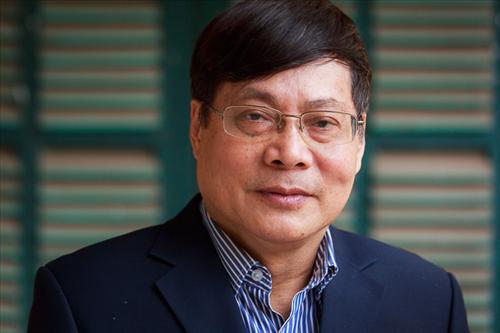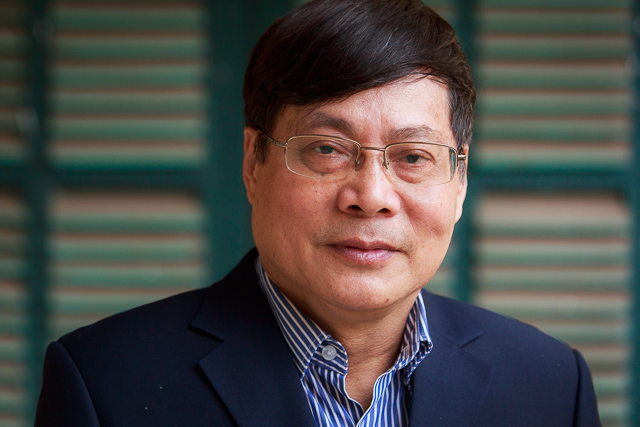
- As someone who has followed the exams for many years, what are your general comments on the university entrance exam in Literature, from the first year of the national high school exam until 2013?
The Ministry's national high school graduation exam started in 2002, and it has been exactly 12 years since then. After 12 years, I have noticed some stable general features as well as some changes, as follows:
Regarding stabilityThe exam question structure, up until 2013, consisted of three questions (2 points, 3 points, and 5 points). The content of the exam was limited to the lessons in the curriculum (including both grades 11 and 12). Based on statistics from both curricula, I found that there were approximately 40 units of material to be studied. That's quite an overload.
Regarding changeBefore 2009, in the exam with three questions, question 1 usually tested reading comprehension (primarily rote memorization, such as summarizing a writer's career, style, and context of writing); question 2 was an essay (usually analyzing or interpreting one or more passages of poetry); and question 3 was an essay (usually of prose works). However, starting in 2009, with the 2-point question, more attention was paid to testing reading comprehension skills, such as the meaning of details and imagery in literary works, or the significance of metaphors and similes in literary works. For the 3-point question, the essay format was replaced with a social commentary question. This change was the most controversial, as some argued that social commentary was somewhat detached from literary works. However, most people agree and support it, believing that this is an open-ended exam that can help test students' knowledge of literature taught in school and its application to real life. Overall, I still don't think this issue is definitively resolved, as some still oppose it if applied excessively, but the majority agree. I personally agree, but I think there could still be other ways to assess students more accurately.

Professor Tran Hinh (Faculty of Literature - University of Social Sciences and Humanities). (Photo: Thanh Long/USSH)
- Starting with last year's high school graduation exam, in line with the Ministry's guidelines, the Literature exam underwent a revolution: the exam was shortened to just two questions, and the time allotted was only 120 minutes. What do you think of this initiative? Will the university entrance exam this year follow this direction?
The Ministry's officials, in their responses to the media, confirmed that this year's university entrance exam will also be tested in that direction. They want to use a few exams to shape the exam format for future years, and the Ministry wants to have only one national exam from 2017 onwards.
Regarding the content and format of the exam, similar to the recent high school graduation exam, I fully support it. In terms of structure, the recent graduation exam only had two questions, but upon closer inspection, it still included both a reading comprehension and a social commentary essay. The only regrettable thing is that, given the length, this question should have been worth 5 points, and the second essay question should also have been worth only 5 points (the graduation exam was worth 7 points). Secondly, regarding the content, I think the Ministry was very bold in expanding the questions beyond the textbook. For example, the 3-point question quoted a passage from a newspaper and asked students about the writing style and to summarize the passage (reading comprehension); only then did they ask them to write a short essay on the current situation in the islands (social commentary); the second question (7 points) was still a typical essay. The only difference is that they chose and guided the writer towards a more practical issue. I think this year's university entrance exam will be structured in that way, but since the exam time is still 180 minutes, the exam structure may still consist of 3 questions.
- So, in your opinion, regarding the way exam questions are formulated for Literature, between the two options: literary analysis and social commentary, which one should be prioritized?
To be honest, even though I strongly support the inclusion of social commentary questions in the Literature exam, I still don't think choosing a social commentary approach is better. I believe it's better to find a balance between life and literature. Back in the 1970s and 80s, we saw university Literature exams with only one social commentary question, or a mix of social commentary and literature. Even with such questions, they still managed to select good students.
I've noticed that over the years we've pushed the Literature exam too far, to the point where it's even anti-literary. For example, around 1985 or 1990, the Ministry had an "initiative to produce" a set of pre-designed Literature entrance exam questions. Schools at that time simply drew lots to select exam questions from this book. Since then, cram schools have sprung up everywhere. Some of these cram schools just dictate answers for students to copy.
And I think the Ministry's direction for reforming the exam format is good, but it's not yet thorough enough. We need fundamental reform, which means changing the way literature is taught and learned in high schools today.

Students taking the 2013 university entrance exam. (Photo: Thanh Long/USSH)
- Teacher, please give the students the most practical advice before they take this year's university entrance exam in Literature?
It's important to learn from the recent high school graduation exam. The exam questions may be less theoretical and more practical. To achieve the highest possible score, you should also pay attention to your presentation: before starting the exam, spend the first 15 minutes thinking and analyzing the question carefully, then create a concise outline to avoid rambling. The essay should be written in clear, sharp ink, without erasing, with arguments starting at the beginning of each line. Minimize spelling and grammatical errors as much as possible. The writing should be smooth, clear, and concise. Try to answer all the questions on the exam; don't leave any unfinished. I wish you all the best in your exam.
Author:Tran Nguyen Phuong Duy
Newer news
Older news